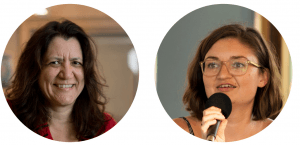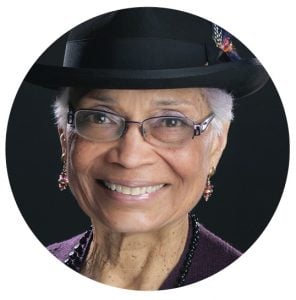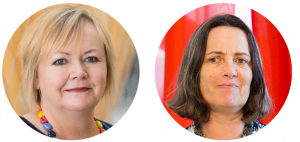The speakers and program for Transformations : Action on Equity – an extraordinary group of researchers, professionals and activists who are challenging and changing the way we think about gender in the built environment.
For more detail see the Transformations website.
This event has now passed. Videos of the sessions are available here.
DAY 1, Thursday, 14 November
Parlour lessons
What has Parlour learned over the last eight years? What ideas can we offer about effective action? Justine Clark and Naomi Stead reflect on the project of advocating for greater gender equity.
Get organised! Action at the grassroots

Many activist groups have emerged in recent years to demand change, support underrepresented groups and shift the image of our professions. What are their motivations and means? What strategies, obstacles and opportunities?
Akua Danso (Black Females in Architecture, UK), Catherine Griffiths (Designers Speak (Up), NZ), Suzie Hunt (#WorkWomenWisdom, WA), April McCabe (Urbanistas, NSW).
Gendered Indigeneity

In conversation – Sarah Lynn Rees (Palawa, JCB Architects, Melbourne) and Carroll Go-Sam (Dyirbal bama, UQ, Brisbane) discuss the intersections of Indigeneity and gender intersect.
Beyond the binary

In conversation – Simona Castricum (Melbourne) and A.L. Hu (New York) explore the lived experience, theory and practice of non-binary and gender non-conforming identities.
From the top: the potential of policy

Gender equity policy has much potential, but how can we ensure it is deployed effectively? How can it gain traction and achieve real change? What are the challenges of putting policy to work?
Emily Grandstaff-Rice (American Institute of Architects), Jocelyn Chiew (Australian Institute of Landscape Architects), Amy Muir (Australian Institute of Architects), Natalie Galea (Australian Human Rights Institute, UNSW).
Action in the field – feminist practice

How do practitioners and researchers help create more equitable built environments, which welcome and support underrepresented groups and disadvantaged communities?
Equity and Transport – Nicole Kalms (MADA XYX Lab) and Derlie Mateo-Babiano (MSD).
Equity in Housing – Samantha Donnelly (UTS, MADA XYX Lab) and Sophie Dyring (Schored).
Keynote – Activists transforming injustice: This is what change looks like

Dr Sharon Egretta Sutton dares built environment professionals to accomplish an equitable future, not for themselves, but for the society they serve.
She envisions built environment professionals who advance equity by digging deep into the well of feminist know-how. She asks us to facilitate community problem solving around today’s ruinous social and ecological challenges, and offers strategies to do so.
DAY 2, Friday, 15 November
Careers research

What does the research tell us about careers in architecture and the built environment professions? Valerie Francis (MSD) and Gill Matthewson (MADA XYX Lab and Parlour) outline their findings.
Mental wellbeing

In conversation – Naomi Stead (MADA and Parlour) and Ben Channon (AMWF & Assael Architecture, UK) discuss what can we do to improve the mental wellbeing of students and practitioners.
Equity in practice – new workplaces

What role can workplaces play in establishing equitable professional cultures? What has changed in recent years? How do we make the workplaces of the future?
Brian Clohessy (BVN, Sydney), Angela Dapper (Grimshaw, London), Patricia Rhee (Ehrlich Yanai Rhee Chaney Architects, Los Angeles) and Stephanie Bullock (Kosloff Architects, Melbourne).
Challenging the canon – rewriting history

How and why do we recover the histories of women’s participation in the built environment? What barriers, assumptions and disciplinary norms are challenged by rewriting built environment histories?
Jude Barber (Voices of Experience, Collective Architecture, Scotland), Madhavi Desai (India), Karen Burns (Global Encyclopedia of Women in Architecture, MSD) and Sarah Rafson (Now What?!, ArchiteXX, US).
Keynote – Welcoming unruly bodies: Re-thinking social, spatial and material practices

Dr Jos Boys asks how is bodily difference made concrete in specific and inequitable ways in architectural processes? How can we unravel the social, spatial and material practices that turn ordinary difference into differentiation and inequality?
Discussing the work of Matrix and the Disordinary Architecture Project, Jos argues that architecture must make transformative social, spatial and material justice a core part of its responsibilities.
Conference wrap

What have we learned and what do we need to do next? A closing panel with young professionals Georgia Birks (Brisbane) and Ekta Nathu (NZ) to reflect on the symposium and invite future action.




















